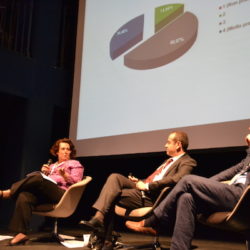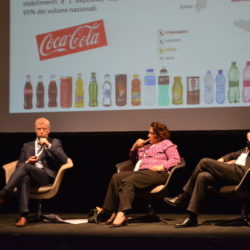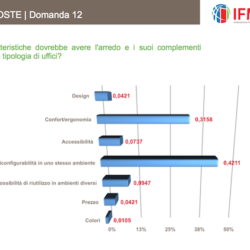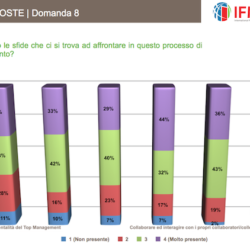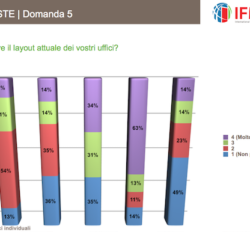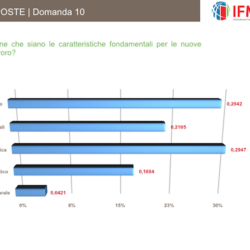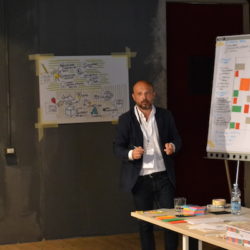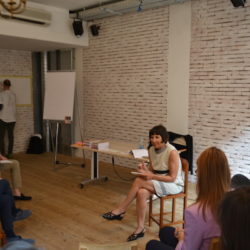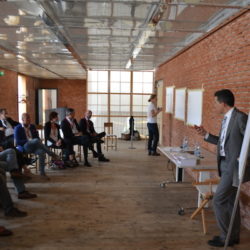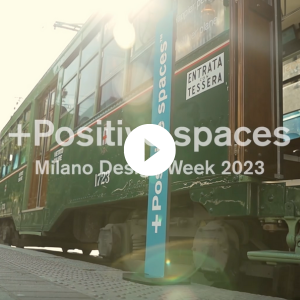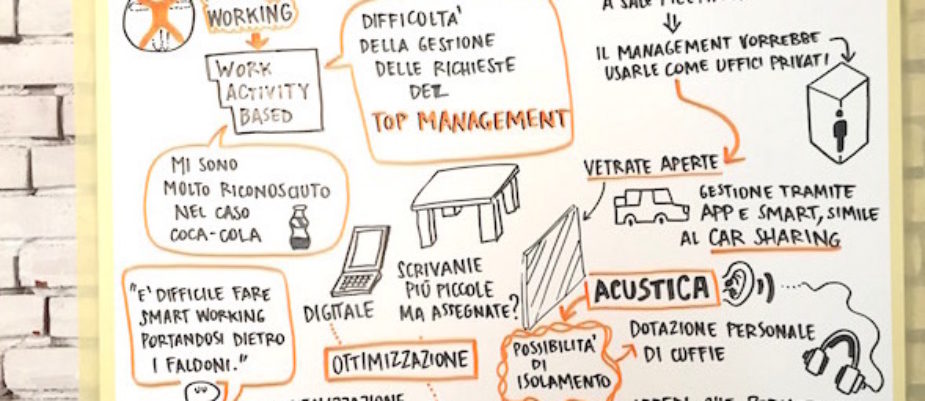
A survey and a vivacious event promoted by Sedus and IFMA Italia have analysed how the new work styles change the concept of workplace and how the furniture functional to smart working will evolve. From the point of view of space management, the results show the need for more focus rooms, namely enclosed offices or private areas for concentrated working, precisely widespread inside the working environments.
Sedus chose a stimulating and innovatory formula to present the survey carried out together with IFMA Italia. At Teatro Parenti in Milan, a place full of atmosphere, last May 19th, the meeting “Smart Working: new spaces for the new working models” gathered facility managers and planners, who could have a debate, subdivided into three workteams and in three different rooms, with the objective to get a clear idea of the key subjects in the space planning of a smart office:
to determine the strategically most important areas,
to define the planning criteria of the new working areas,
to establish which features should furniture have, in order to meet the requirements of smart working and most of all of smart workers.
The final, informal conference allowed to share the results of the three workshops.
The Country Manager di Sedus Italia, Lorenzo Maresca’s opening speech stressed Sedus philosophy, now a Foundation, that hasn’t just invested in products for 140 years, but it also aims at a “productive wellbeing”. After being a pioneer in the field of ergonomic seating, Sedus has taken on a more dynamic view emphasizing that to be seated is however bad for our health, we must move about and, for this reason, it shifted its attention to the complexity of the workplace.
By collaborating with qualified Boards like IFMA or Osservatorio Smart Working of Politecnico di Milano, Sedus tries to find new solutions, in the plural, for the only certainty is that there cannot be an effective solution for everyone: each company, each smart worker has to find its “own” way.
The meeting went on with Maria Antonietta Lisena, who presented the results of the study.
An excellent case study closed the first public part of the event: Pietro Fiorani, National General Services Manager di Coca Cola HBC Italia, explained the smart working solutions adopted for the new Milan Headquarters designed by DEGW.
The new premises were designed by considering the office as a place where people meet to develop projects, a sort of “Mac-Drive to recharge devices, get through a piece of experience, absorb energy for one’s work and develop one’s network, to acquire knowledge and combine an action as a team.
During the second part of the event, the people present were divided into three groups to discuss as many subjects.The three workshop where conducted by Alessandro Adamo (DEGW Italia), Stefano Anfossi (Studio Pierandrei e Associati) e Renata Sias (WOW! Webmagazine) helped by the “graphic Facilitator” of Associazione Punto Uno (Claudio Francescato, Sara Seravalle e Marielle Binken).

